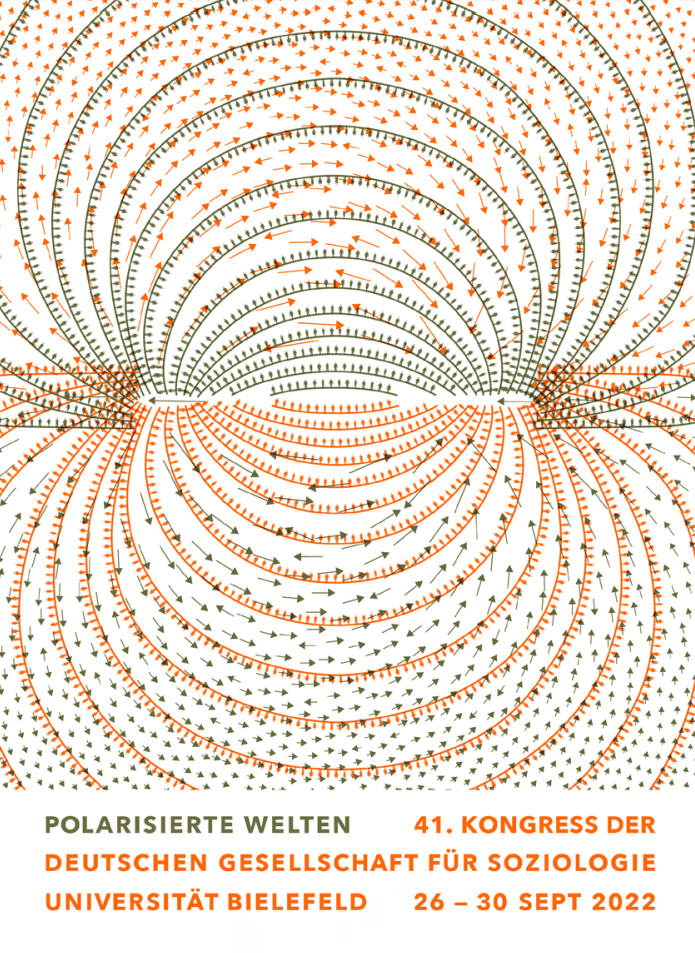The weight of history
Reviving ‘big picture’ sociology in the 21st century
DOI:
https://doi.org/10.21241/ssoar.98738Schlagwörter:
Inequality, Social change, Weight of the Past, EmpireAbstract
I reflect on key arguments of my recent book, The Return of Inequality: Social Change and the Weight of the Past (Savage 2021). I restate the need for sociologists to offer ‘big picture’ accounts of social change, of the kind that canonical social theorists of modernity attempted during the later 19th century and into the 20th century. I use the particular, but high profile, case of UK non-domiciled tax-payers to reflect on how we need can recognise the contemporary significance of historical forces, and thereby expand our time horizons and recognise that many of the social forms that have been endemic throughout human history – elite power, city states, imperial territorial forms, and entitlement and patronage – are returning forces.
Literaturhinweise
Andreotti, A., P. Le Galès, and F.J. Moreno-Fuentes. 2015. Globalised minds, roots in the city: Urban upper-middle classes in Europe. Hoboken: John Wiley & Sons.
Bennett, T., M. Savage, E.B. Silva, A. Warde, M. Gayo-Cal and D. Wright. 2009. Culture, class, distinction. London: Routledge.
Bhambra, G.K. 2017. Brexit, Trump, and ‘methodological whiteness’: On the misrecognition of race and class. The British Journal of Sociology 68:S214–S232.
Boltanski, L. 1982. Les cadres: la formation d'un groupe social. Paris: Editions de minuit.
Bühlmann, F. 2023. Professional service firms and the manufacturing of the corporate nobility. Journal of Professions and Organization 10(1):36–49.
Bühlmann, F., C.H. Ellersgaard, A.G. Larsen and J.A. Lunding. 2023. How career hubs shape the global corporate elite. Global Networks. https://doi.org/10.1111/glob.12430
Calhoun, C. 1982. The question of class struggle: social foundations of popular radicalism during the industrial revolution. Chicago: University of Chicago Press.
Carroll, W.K. 2009. Transnationalists and national networkers in the global corporate elite. Global Networks 9(3):289–314.
Davies, W. 2022. ‘Destination unknown’, London Review of Books 9 June.
Favell, A. 2011. Eurostars and Eurocities: Free movement and mobility in an integrating Europe (Vol. 56). Hoboken: John Wiley & Sons.
Flemmen, M., and M. Savage. 2017. The politics of nationalism and white racism in the UK. The British Journal of Sociology 68:S233–S264.
Fligstein, N. 2008. Euroclash: The EU, European identity, and the future of Europe. Oxford: Oxford University Press
Hugree, Cedric, Etienne Penissat and Alexis Spire. 2020. Social Class in Europe: New Inequalities in the Old World. London: Verso.
Jones, G.S. 1983. Languages of class: Studies in English working-class history 1832-1982. Cambridge: Cambridge University Press.
Halford, S., and M. Savage. 2017. Speaking sociologically with big data: Symphonic social science and the future for big data research. Sociology 51(6):1132–1148.
Katznelson, I., and A.R. Zolberg, eds. 1986. Working-class Formation: Nineteenth-century Patterns in Western Europe and the United States. Princeton: Princeton University Press.
Kocka, J. 1995. The middle classes in Europe. The Journal of Modern History 67(4):783–806.
Korsnes, O., J. Heilbron, J. Hjellbrekke, F. Bühlmann and M. Savage. 2017. New directions in elite studies. London: Routledge
Krause, M. 2019. What is Zeitgeist? Examining period-specific cultural patterns. Poetics 76:101352.
Lipset, S.M., and S. Rokkan. 1967. Cleavage structures, party systems, and voter alignments: an introduction, in Party Systems and Voter Alignments: Cross-National Perspectives, eds. S.M. Lipset and S. Rokkan, pp. 1–64. Toronto: The Free Press.
Mann, M. 1986. The Sources of Social Power: The Rise of Classes and Nation-States, 1760–1914. Cambridge: Cambridge University Press.
Medrano, J.D., 2003. Framing Europe: attitudes to European integration in Germany, Spain, and the United Kingdom. Princeton: Princeton University Press.
Milanovic, B., 2016. Global inequality: A new approach for the age of globalization. Harvard University Press.
Piketty, T. 2014. Capital in the 21st Century. Cambridge: Harvard University Press.
Piketty, T., and G. Zucman. 2014. Capital is back: Wealth-income ratios in rich countries 1700–2010. The Quarterly Journal of Economics 129(3):1255–1310.
Prieur, A., L. Rosenlund and J. Skjott-Larsen. 2008. Cultural capital today: A case study from Denmark. Poetics 36(1):45–71.
Prieur, A., and M. Savage, 2011. Updating cultural capital theory: A discussion based on studies in Denmark and in Britain. Poetics 39(6):566–580.
Prieur, A., and M. Savage. 2013. Emerging forms of cultural capital. European Societies 15(2):246–267.
Recchi, E., A. Favell, F. Apaydin, R. Barbulescu, M. Braun, I. Ciornei, N. Cunningham, J. Díez Medrano, D.N. Duru, L. Hanquinet, S. Pötzschke, D. Reimer, J. Salamońska, M. Savage, J. Solgaard Jensen and A. Varela. 2019. Everyday Europe: Social Transnationalism in an Unsettled Continent. Bristol: Bristol University Press.
Savage, M. 2010. Identities and social change in Britain since 1940: The politics of method. Oxford: Oxford University Press.
Savage, M. 2021. The Return of History: Social Change and the Weight of History. Cambridge: Harvard University Press.
Szreter, S.R. 1984. The genesis of the Registrar-General's social classification of occupations. British Journal of Sociology 35(4):522–546.
Tooze, A. 2018. Crashed: How a decade of financial crises changed the world. London: Penguin.
Downloads
Veröffentlicht
Ausgabe
Rubrik
Lizenz
Copyright (c) 2023 Polarisierte Welten. Verhandlungen des 41. Kongresses der Deutschen Gesellschaft für Soziologie 2022

Dieses Werk steht unter der Lizenz Creative Commons Namensnennung - Nicht-kommerziell 4.0 International.
Beiträge im Verhandlungsband des 41. Kongresses der Deutschen Gesellschaft für Soziologie in Bielefeld werden unter der Creative Commons Lizenz "Namensnennung-Nicht kommerziell 4.0 International (CC BY-NC 4.0)" veröffentlicht.
Dritte dürfen die Beiträge:
-
Teilen: in jedwedem Format oder Medium vervielfältigen und weiterverbreiten
-
Bearbeiten: remixen, verändern und darauf aufbauen
unter folgenden Bedingungen:
-
Namensnennung: Dritte müssen angemessene Urheber- und Rechteangaben machen, einen Link zur Lizenz beifügen und angeben, ob Änderungen vorgenommen wurden
-
Nicht kommerziell: Dritte dürfen das Material nicht für kommerzielle Zwecke nutzen





